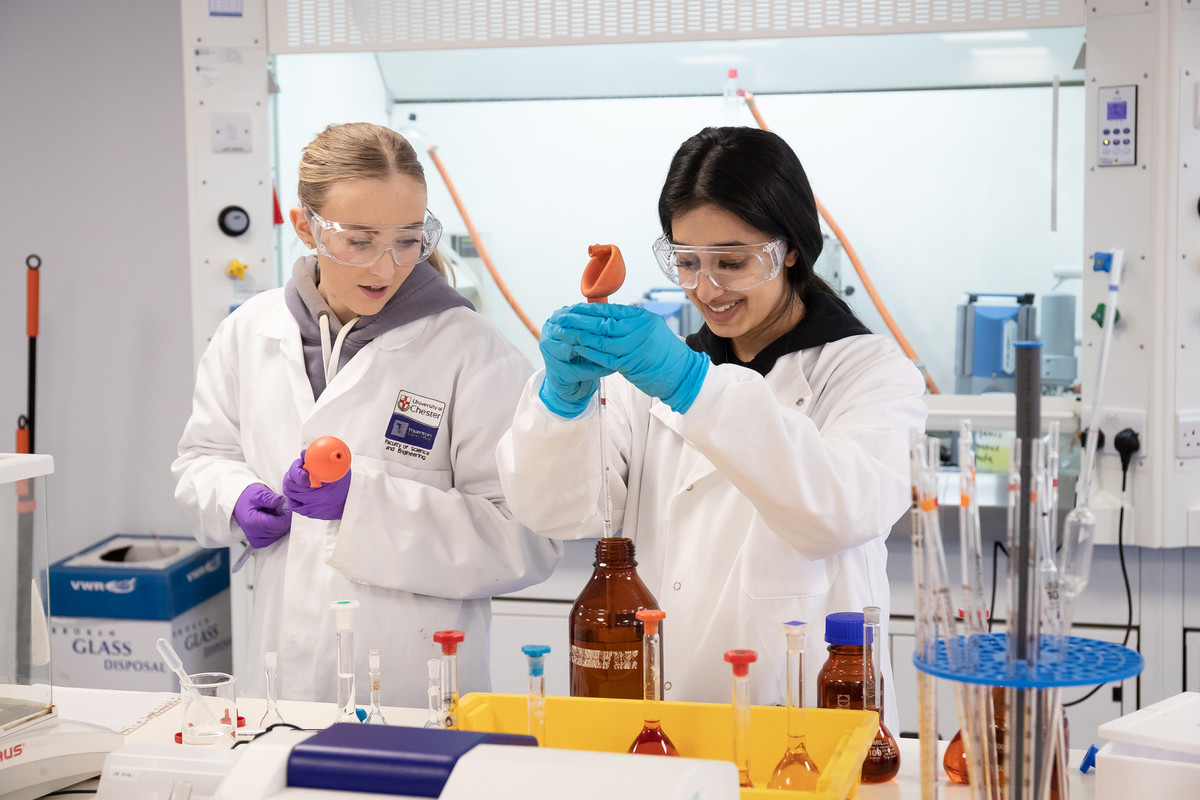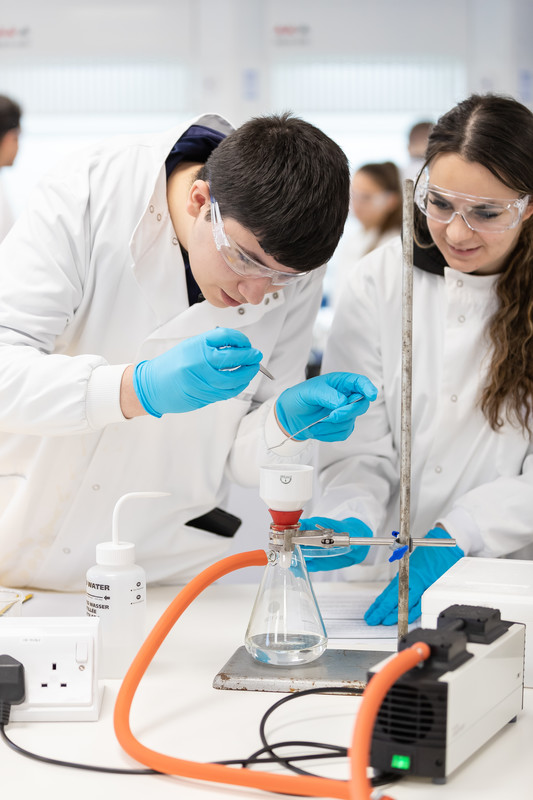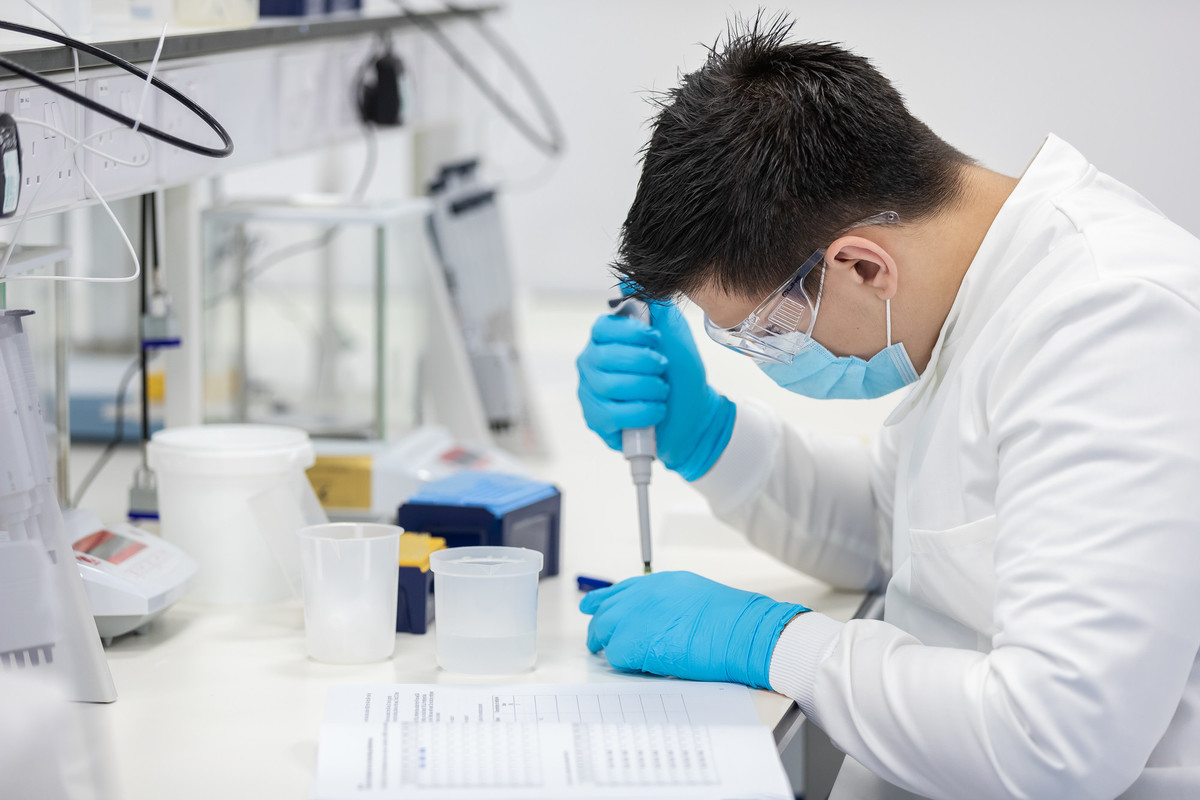112UCAS Points
|
UCAS Tariff |
112 points |
|
GCE A Level |
Typical offer – BCC-BBC Must include A Level Chemistry |
|
BTEC |
BTEC Extended Diploma will be considered alongside A Level Chemistry |
|
International Baccalaureate |
26 points, including 5 in HL Chemistry |
|
Irish / Scottish Highers |
Irish Highers: H3 H3 H3 H3 H4, including Chemistry Scottish Highers: BBBB including Chemistry |
|
Access requirements |
Access to HE Diploma (Science), to include 45 credits at level 3, of which 30 must be at Merit or above (of which 15 must be in Chemistry) |
|
T Level |
T Level will be considered alongside A Level Chemistry |
|
OCR Cambridge Technicals |
OCR Extended Diploma will be considered alongside A Level Chemistry |
|
Extra Information |
Welsh Baccalaureate Advanced and A level General Studies will be recognised in our offer. We will also consider a combination of A Levels and BTECs/OCRs. |
Students from countries outside the UK are expected to have entry qualifications roughly equivalent to UK A Level for undergraduate study and British Bachelor's degree (or equivalent) for postgraduate study. To help you to interpret these equivalents, please click on your country of residence to see the corresponding entry qualifications, along with information about your local representatives, events, information and contacts.
We accept a wide range of qualifications and consider all applications individually on merit. We may also consider appropriate work experience.
English Language Requirements
- IELTS Academic: Undergraduate: 6.0 (minimum 5.5 in each band)
- Postgraduate: 6.5 (minimum 5.5 in each band)
For more information on our entry requirements, please visit International Entry Requirements.
72 UCAS Points
|
UCAS Tariff |
72 points |
|
GCE A level |
72 points overall, including grade D in A level Chemistry |
|
BTEC |
BTEC Extended Diploma will be considered alongside A Level Chemistry |
|
International Baccalaureate |
24 points, including 4 in HL Chemistry |
|
Irish / Scottish Highers |
Irish Highers: H4 H4 H4 H4 H4, including Chemistry Scottish Highers: CCDD including Chemistry |
|
Access requirements |
Access to HE Diploma (Science) – Pass overall (must include Chemistry at Level 3) |
|
T Level |
T Level Diploma will be considered alongside A Level Chemistry |
|
OCR Cambridge Technicals |
OCR Extended Diploma will be considered alongside A Level Chemistry |
|
Extra Information |
Welsh Baccalaureate Advanced and A level General Studies will be recognised in our offer. We will also consider a combination of A Levels and BTECs/OCRs. If you are a mature student (21 or over) and have been out of education for a while or do not have experience or qualifications at Level 3 (equivalent to A Levels), then our Foundation Year courses will help you to develop the skills and knowledge you will need to succeed in your chosen degree. |




-Chemistry.jpg)











